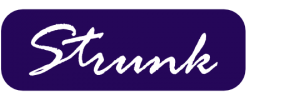Highlight on the American Bankers Association’s Poll Regarding Overdrafts
Legislators are continuing to push for changes in overdraft fees, which they describe as unnecessary and even predatory. They have dubbed these fees as “junk fees.” We know that overdraft fees are not “junk fees,” but rather a convenience for informed consumers. The American Bankers Association (ABA) has pushed back, stating, ‘The administration’s latest attempt to suggest that highly regulated bank fees already disclosed under federal law are ‘junk’-or even illegal- continues to mislead the American people’. According to a survey conducted by Morning Consult from March 8-10, 2024, for the ABA, most Americans have a positive view of the current banking and financial services available to them. The survey specifically revealed that a strong majority of Americans appreciate the value and convenience of bank overdraft programs.
Consumers are more knowledgeable than ever about their banking products. More than two-thirds of consumers (67%) find their bank’s overdraft protection valuable, compared to only 16% who do not per the survey. 8 in 10 consumers who have paid an overdraft fee in the past year were glad their bank covered their overdraft payment, rather than returning or declining payment. Consumers understand the immediate consequences of a returned payment, such as the embarrassment of not being able to pay at a restaurant or other places. They also understand the long-term repercussions, such as late fees, repossessions, tax penalties, or even evictions. If overdrafts are no longer allowed, banks will be able to make up for lost revenue through other means, but consumers may not be able to recover from a financial mistake. According to the Morning Consult survey, 64% of consumers find it reasonable for banks to charge fees for overdrafts, while only 23% don’t think it’s justified. Close to 75% of the participants consider overdraft fees reasonable when it comes to larger payments like mortgages or rent payments are covered and paid on time or protected from late fees or penalties. Overdraft protection provides seamless financial support when needed, making it important to preserve.
Policymakers continue to believe that consumers don’t understand how overdraft protection works or that they don’t have access to their account information. According to the survey, almost 90% of consumers find it easy to check their account balance to avoid overdrawing their accounts. Additionally, two-thirds of consumers are aware that they can opt-out of receiving overdraft protection at any time after they have accepted the service. This is in contrast to only 7% who mistakenly believe that customers are obliged to stay in the program after accepting the service. Approximately 80% of consumers who are currently utilizing overdraft protection have never given serious thought to discontinuing or opting out of the service. Almost 70% of them have expressed their preference that their bank offers overdraft protection as an option to their customers, whether or not a fee is involved, as opposed to only 13% who would rather their bank not offer overdraft protection at all. The ABA survey continues to show how policymakers seem to be out of touch with their constituents and what their true needs and wants are. Policymakers should ensure customers are given a full and fair opportunity to choose overdraft protection, and financial institutions should use it as an opportunity to help customers make better financial decisions in the future. Overdraft protection provides peace of mind, allowing consumers to make sound financial decisions without worrying about the consequences of overdrawing their accounts.


